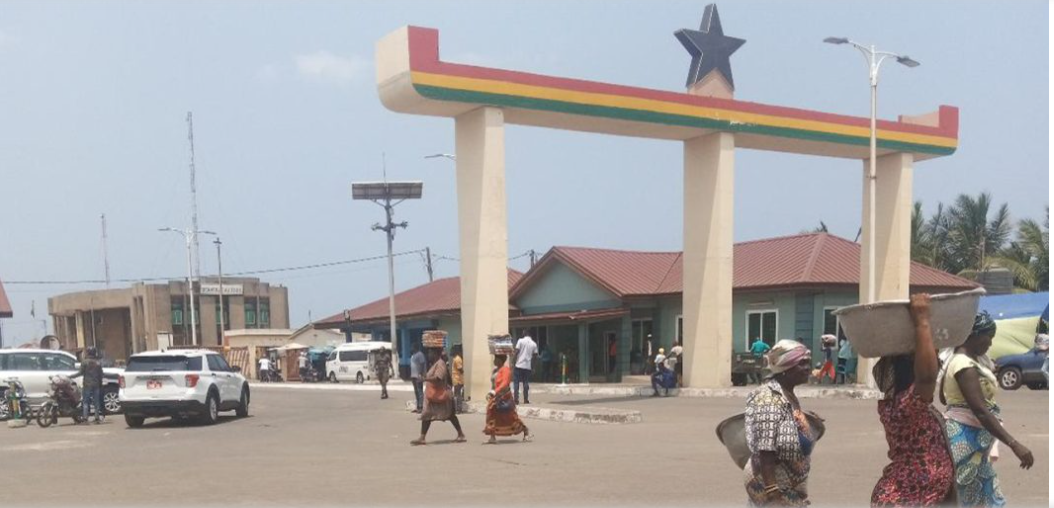 Ghana’s recent legislative strides toward gender equality, with the enactment of the Affirmative Action Bill, have been met with both celebration and skepticism. The law, aimed at ensuring at least 40% representation of women in public and political office, is a significant step forward in a country where women’s political participation remains low. However, cultural norms, entrenched patriarchal systems, and a lack of enforcement mechanisms still pose formidable barriers to actualizing gender parity.
Ghana’s recent legislative strides toward gender equality, with the enactment of the Affirmative Action Bill, have been met with both celebration and skepticism. The law, aimed at ensuring at least 40% representation of women in public and political office, is a significant step forward in a country where women’s political participation remains low. However, cultural norms, entrenched patriarchal systems, and a lack of enforcement mechanisms still pose formidable barriers to actualizing gender parity.
Ghana has a storied history of women’s advocacy and political involvement. As early as 1957, women were involved in the fight for independence, and in recent decades, the country has seen female leadership in key government positions, including the first female Chief Justice, Georgina Wood. Despite these achievements, women’s representation in parliament remains under 15%, far below the global average, and well short of the 30% outlined by international benchmarks like the Beijing Declaration.
The Affirmative Action Bill, passed in 2024 after nearly two decades of advocacy, mandates a minimum quota for women’s participation in governance. It was designed to level the playing field for women in politics, public administration, and corporate leadership. Supporters argue that it will create pathways for future female leaders, provide better representation of women’s issues, and address systemic gender biases that have historically sidelined women.
The law also extends to the private sector, where companies are now encouraged to include more women in leadership roles. The bill stipulates that all government institutions must work toward a balanced gender representation within their structures, with non-compliance potentially leading to sanctions.
While the bill has been hailed as a significant achievement, real change remains elusive. Critics argue that legislation alone cannot dismantle deep-rooted patriarchal structures that have long marginalized women. In rural areas, traditional gender roles prevail, and women’s access to education, healthcare, and economic resources remains unequal compared to men. Many women face domestic violence, limited employment opportunities, and lack of political support from their communities.
 A critical issue is the absence of enforcement mechanisms within the law. Observers worry that without clear guidelines for implementation and penalties for non-compliance, the bill could become more symbolic than practical. Some fear that, like previous gender-focused initiatives, the new law might not be fully operationalized, leading to minimal tangible outcomes.
A critical issue is the absence of enforcement mechanisms within the law. Observers worry that without clear guidelines for implementation and penalties for non-compliance, the bill could become more symbolic than practical. Some fear that, like previous gender-focused initiatives, the new law might not be fully operationalized, leading to minimal tangible outcomes.
Additionally, political parties have historically been slow to embrace female candidates, often favoring male counterparts in elections. Without a strong commitment to fostering female political leadership, the bill could struggle to achieve its objectives.
Cultural attitudes toward women in leadership continue to be a major obstacle. Many women face discrimination when they run for office, often encountering gender-based violence or slander, which deters others from participating in politics. Despite the law’s attempt to promote female representation, societal perceptions of women’s roles remain a significant hindrance to achieving true gender equality.
Religious and traditional beliefs also play a part in curbing women’s progress. In many communities, women are still expected to prioritize household duties over professional aspirations, and their involvement in politics is seen as secondary to their familial roles. These deep-seated cultural norms create an environment where women are not fully empowered to pursue leadership roles, even when the law is on their side.
While the Affirmative Action Bill is a necessary first step, much work remains to be done to shift societal attitudes and strengthen institutional support for gender equality. Advocacy groups are calling for educational campaigns to raise awareness about the law and its benefits, as well as more robust systems to monitor compliance across public and private sectors.
International bodies and local NGOs continue to pressure the government to back up the law with strong policies and funding that will ensure its full implementation. Many believe that without a sustained focus on education, mentorship for aspiring female leaders, and stringent enforcement measures, the gap between legislation and reality will persist.
In conclusion, Ghana’s passage of the Affirmative Action Bill reflects a significant legislative commitment to gender equality. However, without addressing the underlying social, cultural, and institutional barriers, the journey toward true gender equality remains long and uncertain. Women in Ghana continue to fight for their voices to be heard, not just through the law, but in all facets of society.
Ennywealth


